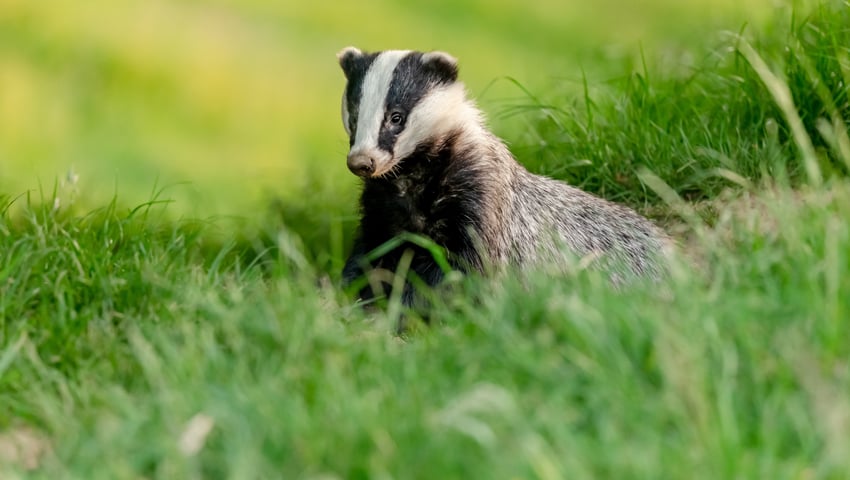A new farmer-led project aims to provide better understanding of the impact badger vaccination could have on controlling bTB.
The NFU says that it is expecting Defra to award funding of £1.4m towards research into badger vaccination in the South West, carried out by the NFU in partnership with the ZSL (Zoological Society of London).
This farmer-led project has been driven by members in the region who want to better understand the impact vaccination may have and the role it might play in future strategy.
Based upon these learnings, the project sets out to develop a scalable, impactful, and cost-effective badger vaccination delivery model.
Working in partnership with a small team of trained vaccinators from ZSL, the farmer-led project will use local landowners and other local industry representatives to trap badgers on farm.
Initially, ZSL will vaccinate the badgers, but will also train others within the area interested in becoming a vaccinator. This approach looks to increase the local workforce and capacity for vaccination delivery, ultimately allowing more landowners access to badger vaccination as a means of control.
Vaccinated badgers will be blood tested to track the effectiveness of vaccination within the wildlife population and camera traps used to estimate badger population densities and vaccination coverage, as well as offer an indication of badger recovery rates in post cull areas. The aim being to help fill the evidence gap on badger vaccination and its impact upon the disease within cattle.
NFU President, Tom Bradshaw, said, “If awarded, we hope this funding will help farmers and researchers work together to take further steps in achieving our shared goal of eradicating bTB.”
Badger vaccination is currently delivered on an annual basis for at least four years to build herd immunity.
This project looks to evaluate the current approach but will also test a biennial (vaccinating in year 1 and year 3) and more targeted approach to identify a more practical and affordable model.
The targeted approach entails adjusting vaccination frequency and location based upon the local disease picture in both cattle and badgers by deploying vaccination on TB breakdown and surrounding farms.
In August, the government set out a new approach to bTB eradication that included a study into badger vaccination.
The NFU says that badger vaccination cannot be used as a direct alternative to culling and evidence is needed to give the NFU and wider farming industry the confidence that badger vaccination has any effect in reducing bTB in cattle, before proving its ability for delivery at the necessary scale, cost-effectively.
The NFU says that it has always maintained that a comprehensive bTB eradication strategy must be based on clear science and evidence, and will continue to work with government agencies to achieve this.
